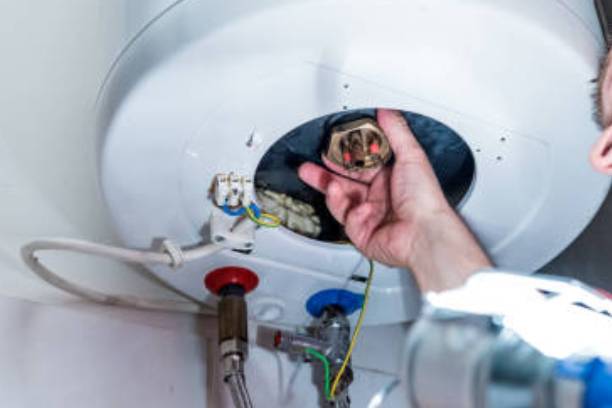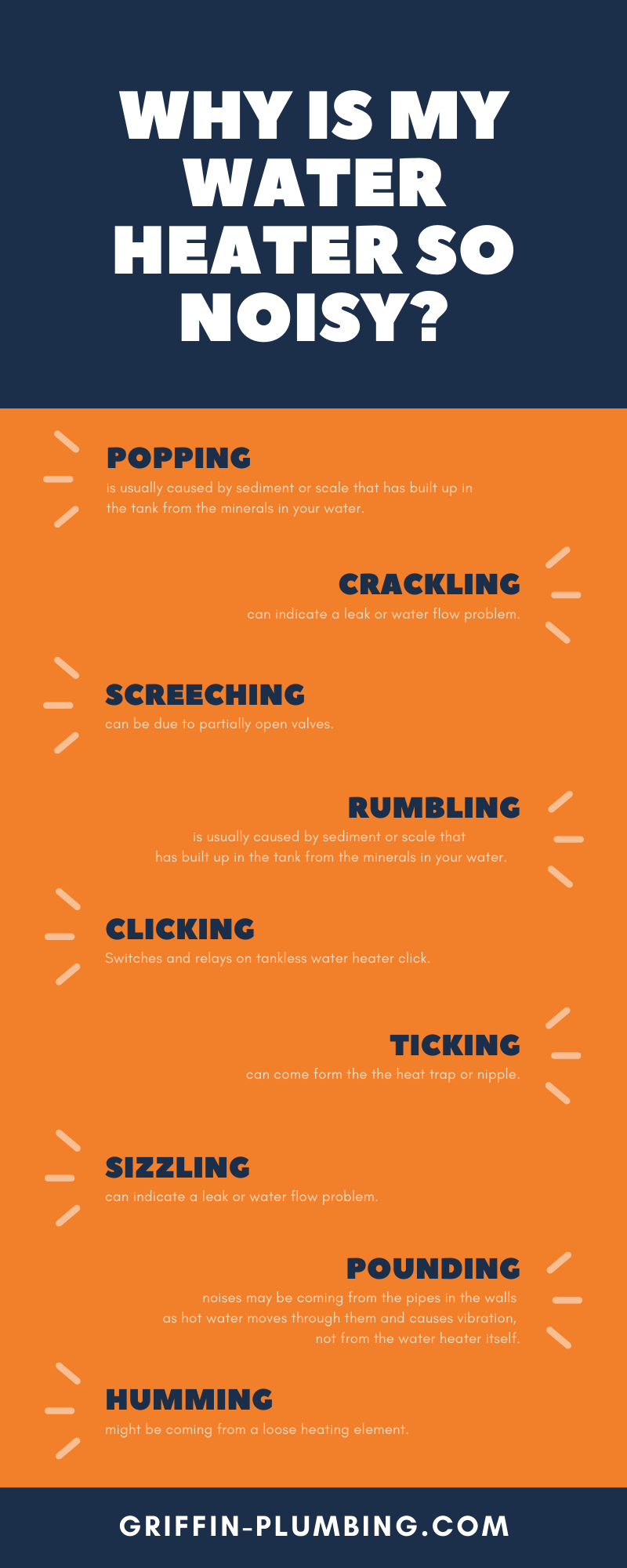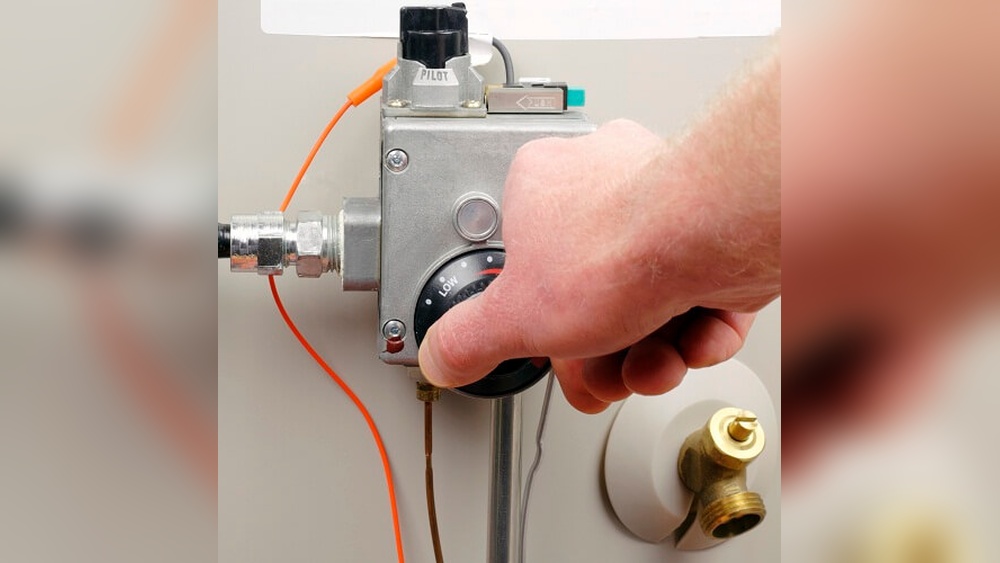Is your water heater making a high-pitched noise that’s driving you crazy? You’re not alone.
That sharp, whistling sound can be more than just annoying—it might signal a problem that could cost you more if ignored. Understanding why your water heater is making this noise can help you fix it quickly and avoid bigger issues down the line.
Keep reading to discover the common reasons behind that noise and what you can do to make your water heater quiet and efficient again.

Credit: www.reddit.com
Common Noise Types
Water heaters can make different noises. Some are normal, but others signal a problem. Knowing the common noise types helps you act fast. It can save you money and prevent damage. This section explains the most common sounds from water heaters. It focuses on high pitched noises that can be worrying.
Identifying High Pitched Sounds
High pitched sounds from a water heater often come from pressure or mineral buildup. These sounds are sharp and clear. They stand out from usual humming or bubbling noises. The noise may increase when the heater is working hard. Sometimes, it sounds like a whistle or a small scream. Listening carefully helps identify these sounds.
These noises can mean your water heater needs attention. They often point to issues with the pipes or heating element. Ignoring them might cause bigger problems later. Checking the sound early can prevent costly repairs.
Difference Between Whistling And Screeching
Whistling is a soft, steady sound. It often happens when water passes through a narrow pipe or valve. It can also mean a small leak or air trapped in the system. Whistling is less harsh but still a sign to inspect your heater.
Screeching is louder and more intense. This noise usually comes from worn parts or buildup on the heating element. Screeching can also indicate pressure problems inside the tank. It is more urgent than whistling and needs quick action.

Credit: spsplumbers.com
Causes Inside The Water Heater
The high-pitched noise inside a water heater often points to issues within the unit itself. These sounds usually come from parts working harder or struggling. Understanding the root causes inside the water heater helps in fixing the noise quickly.
Water heaters have several components that can cause noise. Some parts wear out or get dirty over time. Such problems lead to strange sounds, including high-pitched whines or squeals.
Mineral Buildup On Heating Elements
Heating elements get coated with minerals from hard water. This layer makes the element work harder. The extra effort causes a high-pitched noise. The buildup also reduces heating efficiency and can damage the element.
Pressure Relief Valve Issues
The pressure relief valve releases excess pressure inside the tank. If it is faulty or partially closed, it can whistle or squeal. This noise happens when water pressure pushes against the stuck valve. Checking and fixing this valve stops the noise.
Sediment Accumulation In Tank
Over time, sediment collects at the bottom of the tank. It traps heat and causes uneven heating. The trapped heat creates popping or high-pitched sounds. Flushing the tank regularly prevents sediment buildup and noise.
Plumbing-related Causes
High-pitched noises from your water heater often come from plumbing issues. These sounds can be signs of small problems in your pipes or valves. Understanding these plumbing-related causes helps you fix the noise quickly.
Pipe Vibrations And Resonance
Pipes can vibrate when water flows through them fast. This vibration creates a high-pitched noise. The sound happens because pipes resonate like a musical instrument. Loose pipes or poor support make the noise worse.
Water Flow Restrictions
Blockages or narrow pipes slow down water flow. This causes water to rush through small spaces quickly. The fast flow makes a sharp, whistling noise. Sediment buildup inside pipes can cause these flow problems.
Loose Or Faulty Valves
Valves control water flow in your heater. When valves are loose or damaged, they can vibrate. This vibration leads to a high-pitched sound. Tightening or replacing faulty valves often stops the noise.

Credit: prakriti.health
Impact Of Water Quality
Water quality plays a big role in how a water heater works. Different minerals and chemicals in water affect the heater’s parts. These changes can cause strange noises, like high-pitched sounds.
Understanding water quality helps explain why your water heater makes noise. It also shows what to do to fix or prevent these sounds.
Hard Water Effects
Hard water contains many minerals, mainly calcium and magnesium. These minerals build up inside the water heater. This buildup causes the water heater to work harder. The harder work can lead to high-pitched noises. The minerals also reduce the heater’s efficiency. Over time, the noise may get worse if hard water is not treated.
Corrosion And Scale Formation
Corrosion happens when metal parts in the heater react with water and air. This reaction creates rust and weakens the metal. Scale forms from mineral deposits sticking to the heater’s surfaces. Both corrosion and scale block heat transfer. This blockage makes the water heater overheat and produce noise. The high-pitched sound is often from trapped steam or vibrating parts. Regular cleaning can reduce corrosion and scale buildup.
When To Call A Professional
Knowing when to call a professional is key if your water heater makes high-pitched noises. Some sounds mean a simple fix. Others point to serious trouble. Acting fast can save you money and avoid damage. Here are clear signs that you need expert help. Also, learn important safety tips to protect yourself and your home.
Signs Of Serious Problems
Persistent high-pitched noise that won’t stop is a warning. Leaks near the water heater show a broken seal or pipe. Rust or corrosion on the tank means it may fail soon. Water temperature changes quickly or is too hot. The pilot light or burner won’t stay on. These signs need quick professional inspection and repair.
Safety Precautions
Turn off the power or gas supply before checking the heater. Avoid touching hot parts to prevent burns. Do not try to fix gas leaks yourself. Keep children and pets away from the heater area. Call a qualified technician to handle electrical or gas issues safely. Your safety comes first with any water heater problem.
Preventing High Pitched Noises
Preventing high pitched noises from your water heater improves comfort and extends its life. These sounds often signal small issues that can grow worse without care. Taking simple steps stops noise before it starts. Regular checks and water treatment keep your heater running smoothly and quietly.
Regular Maintenance Tips
Check the water heater every few months. Look for leaks or rust around the tank. Drain a few gallons to remove sediment build-up. Sediment causes noise and lowers efficiency. Test the temperature-pressure relief valve to ensure it works. Replace worn parts quickly to avoid bigger problems. Regular maintenance keeps the system quiet and safe.
Water Softening Solutions
Hard water causes mineral deposits inside the heater. These deposits create noise and damage the tank. Installing a water softener reduces minerals like calcium and magnesium. Soft water helps prevent scale build-up. This leads to less noise and longer heater life. Softening your water is a smart step for quiet operation.
Frequently Asked Questions
Why Is My Water Heater Making A High Pitched Noise?
A high pitched noise often comes from sediment buildup inside the tank. It causes mineral deposits to trap heat and create noise. Flushing the tank regularly can prevent this issue and maintain heater efficiency.
Can Water Pressure Cause High Pitched Water Heater Noise?
Yes, high water pressure can cause pipes and the heater to vibrate, producing high pitched sounds. Installing a pressure regulator can help reduce noise and protect your plumbing system.
Does A Faulty Thermostat Cause Water Heater Noise?
A malfunctioning thermostat may cause overheating, leading to unusual noises. It’s important to check and replace the thermostat if it’s not maintaining the correct temperature.
How Often Should I Flush My Water Heater Tank?
Flushing your water heater once a year helps remove sediment buildup. This reduces noise, improves efficiency, and extends the heater’s lifespan. More frequent flushing may be needed for hard water areas.
Conclusion
A high-pitched noise from your water heater signals a problem. Sediment build-up or pressure issues often cause this sound. Ignoring the noise can lead to bigger repairs. Regular maintenance helps keep your heater quiet and efficient. Check your heater soon to avoid damage and save money.
Quiet water heaters mean better comfort at home. Don’t let small noises become costly problems. Stay aware and act quickly to protect your heater.

